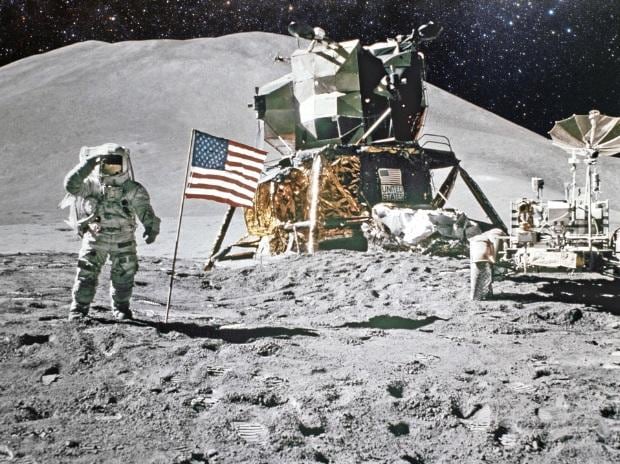Women have been historically excluded from the space program.
Business
Standard : In March 2019, Vice President Mike Pence stated
that the goal of NASA should be to return humans to the Moon by 2024.
While the cost of such a venture isn’t known yet, NASA
Administrator Jim Bridenstine has supported the effort and gone as
far as naming the 2024
Moon mission, Artemis.
The
selection of Artemis is no mistake. In Greek mythology, Artemis was
the sister of Apollo as well as goddess of the Moon. The name also
signals a new focus on the role of women in space exploration.
From
my perspective as a space policy analyst, this is an important
message for NASA
to send. Women have been historically excluded from the space
program, especially early on. While women have made inroads both as
astronauts and more generally within the NASA ranks since, there
remains a significant gender gap in support for space exploration.
And
for Artemis to succeed in getting the first woman to the Moon by
2024, a lot of political and public support will be required. But a
recent AP-NORC poll found there is not a lot of enthusiasm for going
back to the Moon. Only 42% of the 1,137 respondents supported the
idea, 20% opposed it, and 38% didn’t care either way. NASA’s
efforts to reach out to women should help them garner support, but it
is by no means guaranteed.
Women
in space and STEM
There
is a long-recognized gap in the number of men and women who pursue
careers in science, technology, engineering and math, with women
lagging far behind. Research into this phenomenon has ruled out
differences in mental ability. Rather it attributes the gap to the
power of stereotypes on young children.
One
need look no further than the early space program for evidence of
this. The astronauts of the 1950s and 1960s were all men, a natural
result of the requirements for astronauts to have a military and
test-piloting background. Given that women were not allowed in these
fields to begin with, they were excluded.

No comments:
Post a Comment